We're hiring: Land Stewardship Specialist
This full-time position plays an integral role in our Stewardship and Land Management team by conducting annual monitoring visits to properties protected by conservation easements, interfacing with landowners, compiling reports, and more.
Local Farms, Local Food: Part 3
May 1st, 2018
By Guest Contributors
Upstate Forever's work preserving farmland helps prevent urban sprawl, boosts community health, and contributes to a thriving regional food community.
For our Spring Issue of the Upstate Advocate, we reached out to local farmers, restaurateurs, retailers, and other stakeholders asking them what a thriving local food scene means to them.
Here, in the words of some of the people who know best, are a few reasons why Upstate Forever is working so hard to protect our region's vanishing farmlands. Part 3 of this blog series features thoughts from Farm Fresh Fast & Gibson Organic Farms.
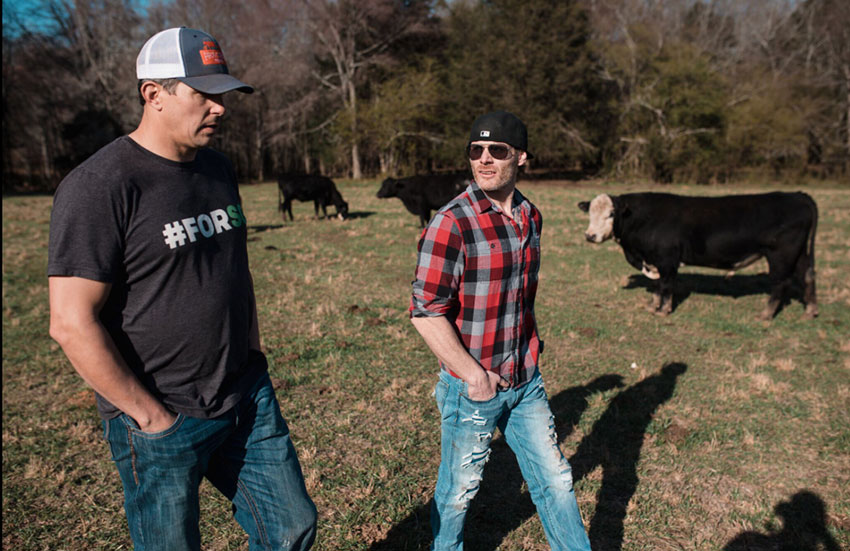
Jonathan Willis (right) of Farm Fresh Fast
Farm Fresh Fast
What is your organization, and how do you see your role in the Upstate's local food community?
We are Farm Fresh Fast. Our mission is to bridge the gap between the producer and the consumer through delicious, nutritious food. We are a first-to-market concept so we feel that we are blazing our own path. We plan to effectively bring our farmers to the forefront of the farm-to-table discussion by exposing them to marketing opportunities and creating a thriving fiscal ecosystem between farm, restaurant and customer.
Why does having a thriving local food/farm scene matter to the Upstate?
Farm-to-table is multifaceted. On one hand it increases the food scene through the quality of food as well as well as the marketability of being different. On another it increases the overall fiscal economy as the money is staying in the same geographic area. Finally it connects the community as the farmers, chefs and customers are all in a symbiotic relationship. If any fails, they all equally fail. So the community is more engaged and appreciative of the movement.
Why does it matter to you personally?
Personally I come from tobacco farmers and coal miners. Blue collar all the way. I look at the farm-to-table movement as a positive step for acceptance of blue collar work in the mainstream. Nothing about farm-to-table on the farming side is glamorous. However, when we market farming as THE integral part of our business then it becomes relevant. No one before us actually SHOWED their customers where their food came from. We don’t just have foodies come in and talk about our farm, we take them to our farms so they can respect the truly beautiful art that allows us to create our dishes. One of our tag lines is “We’re just a bunch of blue collar boys ‘n girls tryin’ to feed a white collar town”
In your opinion, what is the biggest benefit to buying/consuming local food?
Consumers know exactly where their food comes from. They know the practices of which the vegetables and fruits are grown, as well as the living conditions of the livestock. They can also meet the people growing their food, which opens up a whole new level of respect. When people go on the farms with us everything becomes so much more than food, it’s a respectable art. When they see the animals walk around and interact with their environment, it becomes more than just meat.
What is your vision for the future of local food/farms in the Upstate?
In 2017 we struggled keeping a supply of various vegetables and knew we didn’t want to go through that this year. For 2018 we planned months ahead of the first of the year with our farmers for what we wanted. We then sent that list out to the farmers we currently source from, as well as others we previously did or have shown interest in providing for us. Instead of farmers growing a variety of items without a proven market, we have given them accurate projections as well as specific items. This way they are growing knowing they will be selling their products because they are growing specific quantities, spoken for, even when the markets are flooded with crops/items.
— Jonathan Willis | Farm Fresh Fast & Seedlings, Greenville | eatfarmfreshfast.com
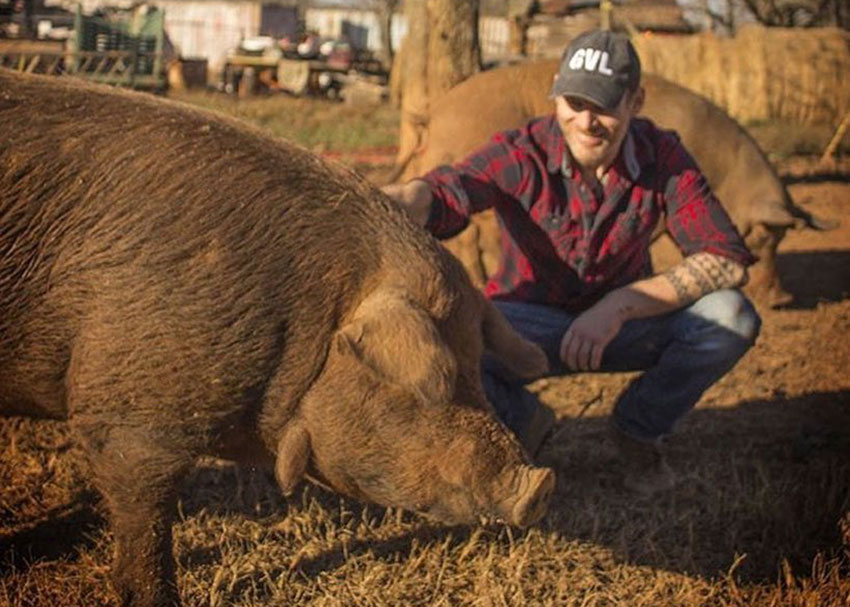
Jonathan Willis of Farm Fresh Fast
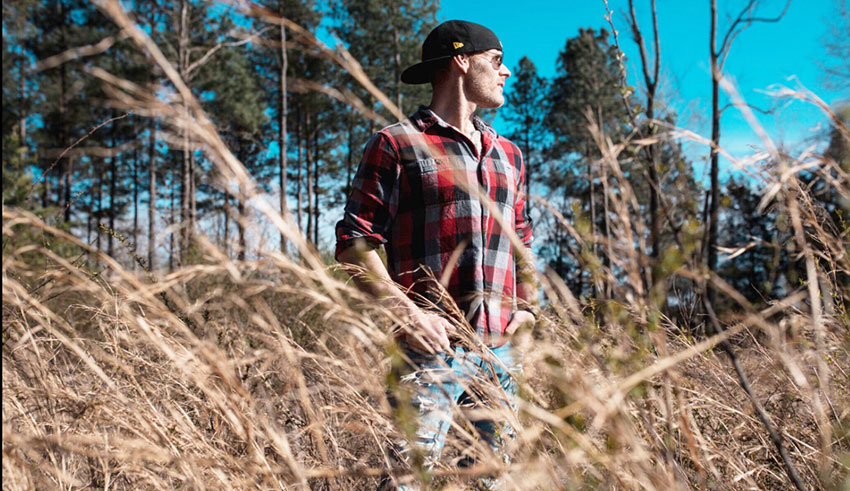
Jonathan Willis of Farm Fresh Fast
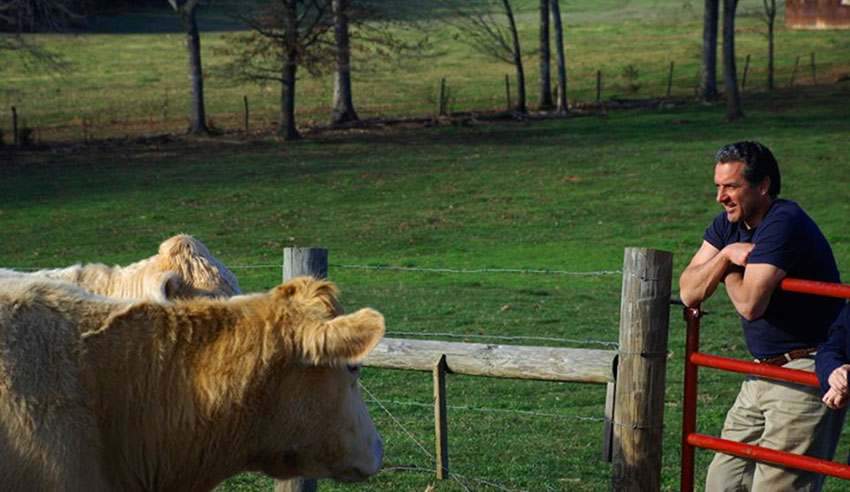
Leland Gibson
Gibson Organic Farms
What is your organization, and how do you see your role in the Upstate's local food community?
My organization is Gibson Organic Farms Inc, and we produce certified organic beef. I am the third generation of my family to operate the farm started by my Grandmother and Uncle in 1958. My Dad took over operations on the farm after retiring from the corporate world in 1998 and made a lot of changes to the farm, setting up rotational grazing and installing watering tanks in each pasture. In 2005 he was awarded the State Conservationist award for his work to clean up the streams and waterways on the farm. I took over operation of the farm in 2010. In June of 2011 I became the first certified organic cattle operation in South Carolina and remained the only certified organic beef operation until 2017. Only two other cattle operations in the State are Certified Organic.
My role as I see it in the local food community is to provide a truly unique product for the food community, certified organic, grass fed, grass finished beef. Our cattle are on grass their entire lives and are never fed anything other than the hay that is harvested on the farm. In 2010 there was a high demand for local organic grass fed beef and no suppliers. Eight years later the demand is still higher than my farm can produce.
Why does having a thriving local food/farm scene matter to the Upstate?
A thriving local farm/food scene is a vital part of the economy of the upstate. Agriculture is one of the largest businesses in the state. Buying from local farms keeps the money in the local community rather than feeding large international corporations. It is also good for the environment. Products grown and consumed in our local community saves on fossil fuels required to ship produce and meat from the west coast making our local farms more sustainable.
A vibrant local farm/food community also contributes to the economy by attracting tourist to our area that visit our farms during farm tours, and the visitors are always anxious for a delicious meal prepared with our premium locally grown products.
A strong local food community also supports the local farmer. For the first time in my memory (I am 57) the local farmers are actually making enough money to make a living at the trade they love. The farmers are able to sell directly to the customer through local farmers markets, from their own farms and through the local restaurant scene. This allows more profit to stay with the farmer rather than dole the funds out to the middle man.
Why does it matter to you personally?
The local food scene matters to me personally in many ways. I did not obtain the organic certification because it was easy, it is a very tough program. I support the standards of the organic program and feel it is the best way to run my farm, the best method of operation for the animals and livestock, and it is also the best standard for those who consume our beef.
I have nutritionalists bring their patients to the farm with food allergies. Most can not consume beef, pork or poultry without an allergic reaction. I am proud to say the beef we produce is the cleanest you can possible buy, raised without any grains, antibiotics or hormones. I am also proud to say that every child and adult with food allergies that was introduced to our beef has been able to start enjoying a good steak or hamburger without an allergic reaction.
The same is true of the six customers that were referred to the farm because of cancer issues, their doctors recommended an organic diet and my farm is one of the only places they can go to get true certified organic beef and bones to make bone broth.
In your opinion, what is the biggest benefit to buying/consuming local food?
In my opinion the biggest benefit for buying and consuming local food is that you can get to know the person that grew the food you consume. In a day when there is much mistrust of the food and products we buy at the major grocery chains, you can buy from a local farm that you develop a relationship with, and trust that you are buying food that is delicious and nutritious, and fresh. You can buy eggs that were laid the same day, purchase vegetables that were harvest the same day rather than harvested for a week or more and sat in a warehouse for a few days before being shipped to the local grocery store. And you can take great pride in supporting the local farmer and his/her family.
What is your vision for the future of local food/farms in the Upstate?
My vision for the local farm/food scene is that it continues to grow and thrive. I think we have only started to tap into the potential of the local farm to table scene and encourage more farms to develop the relationship with the community, and more people to develop a relationship with your local farms.
— Leland Gibson | Gibson Organic Farms, Inc., Westminster | gibsonfarmsorganicbeef.com
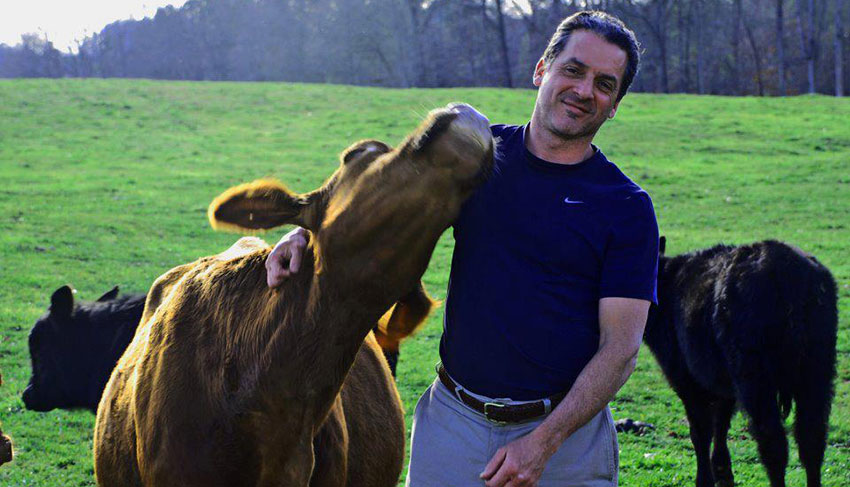
Leland Gibson of Gibson Organic Farms
View more posts in this blog series at upstateforever.org/local-food. If you didn’t get a chance to respond, and would like to, please contact sboman@upstateforever.org. Participants’ views do not necessarily reflect the views of Upstate Forever.

